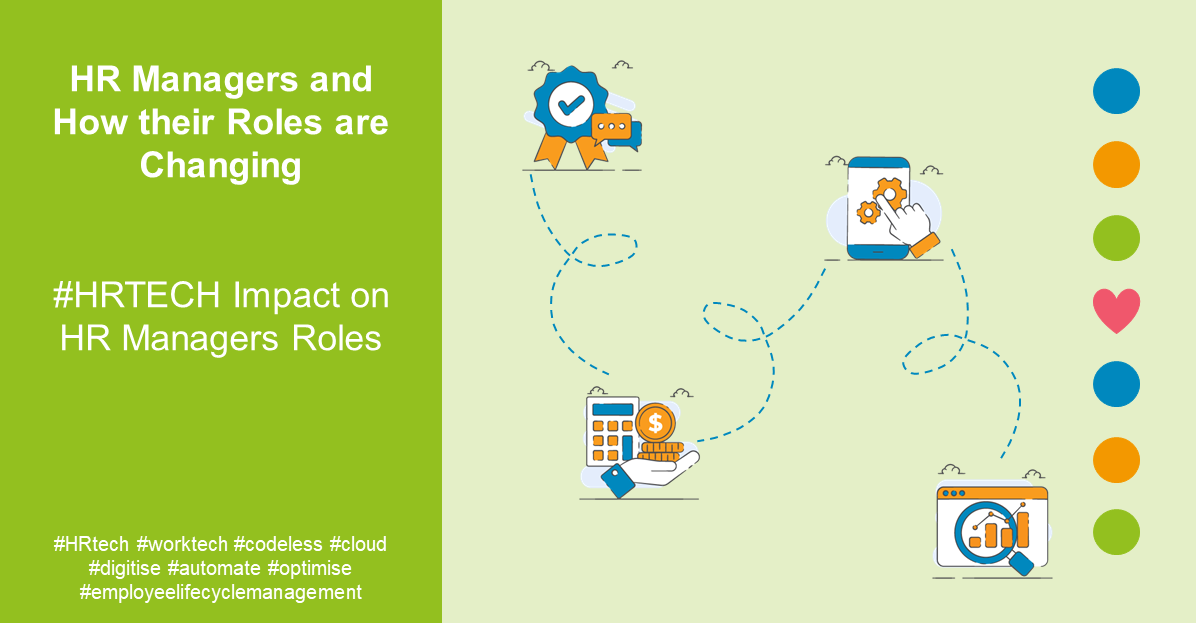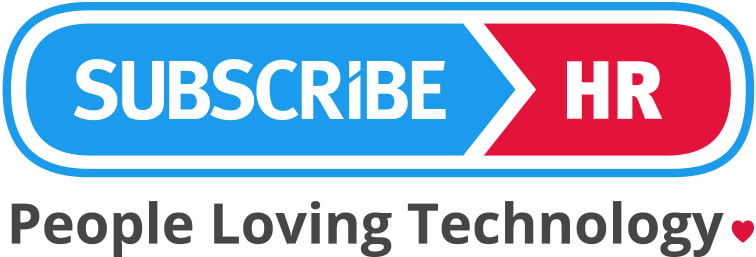It's no secret that HR management is a vital part of any organisation. HR managers are usually responsible for managing employee needs, recruiting, training and retaining talent, as well as keeping an eye on compliance.
However, with today’s lightning-fast advances in technology, the role of HR managers has undergone a complete transformation.
The advent of HR tech has completely revolutionised the way HR managers approach their work, empowering them to automate routine tasks, streamline processes, as well as acquire valuable insights into employee behaviour and performance.
As a result, the role of HR managers has shifted from being primarily administrative and compliance-focused to being far more strategic and data-driven.
In this blog post, we'll explore how HR tech is transforming the role of HR managers and what this means for the future of the field. We'll also delve into the latest trends in HR technology and discuss how organisations can harness HR tech to optimise their HR management practices, attract and retain top talent, and propel business growth.

The Evolving Role of HR managers: What Has Changed?
Historically, HR managers were tasked with a variety of administrative and operational duties. These included keeping employee data and records organised, leading the recruitment and hiring processes, as well as handling benefits and payroll. HR managers would also make sure the organisation follows all the relevant employment laws and regulations.
HR managers would also put in place employee training and development programs, mediate employee conflicts, and manage performance evaluations.
In a nutshell, HR managers' focus used to ultimately be on managing the everyday HR operations to ensure that everything ran smoothly and that employees were well taken care of.
But, over time, the role of HR managers has undergone a significant transformation. While their traditional responsibilities of managing employee data and ensuring compliance with employment regulations are still critical, HR managers are now expected to take a wholly different approach. Let’s explore this further.
From an Administrative Focus to a Strategic Focus
The focus has now shifted towards HR managers playing a more strategic role in the success of the organisation. This means a range of practices:
-
Identifying talent gaps
-
Developing talent acquisition strategies
-
Creating programs to retain employees
-
Working with executives to develop and implement business strategies
HR managers now place more emphasis on creating and maintaining a positive company culture. They strive to create an environment where employees feel valued and supported, which contributes to higher levels of productivity and organisational success.
In fact, another key role of HR managers is to identify and recruit top talent to fill crucial positions in the company. They are also responsible for developing and implementing training programs that give employees the skills and knowledge they need to best perform their jobs. This, in turn, leads to improved employee retention, as employees feel valued and supported in their roles.
In addition, HR managers are instrumental in ensuring that the organisation complies with relevant laws and regulations. They keep up-to-date with the latest employment laws and ensure that the company is in compliance with all legal requirements.
That's not all though - the role of HR managers has especially changed since the emergence of HR technology. HR tech has completely transformed the way HR managers approach their work, empowering them to automate routine tasks, streamline processes, and acquire valuable insights into employee behaviour and performance.
With the rise of HR tech, HR managers can collect and analyse data on employee behaviour and performance. HR tech tools are able to track things like employee engagement, job performance, and attendance, allowing HR managers to make data-driven decisions to improve organisational success.
The Many Benefits of HR Tech
HR tech is all about using technology to make HR management practices more effective. This includes using a variety of software and digital tools that can automate HR processes, provide data insights, and support employee engagement and development.
One of the biggest benefits of HR tech is that it frees up HR managers to focus on more strategic initiatives. HR managers have more time to focus on important projects and programs that can have a bigger impact on the organisation by automating routine tasks like:
-
Benefits administration
-
Payroll processing
-
Leave management
-
Recruitment
-
Onboarding
-
Time and Attendance
-
Compliance
-
Performance Management
HR tech also provides valuable data insights for HR managers to make informed decisions. By tracking employee engagement, job performance and attendance, HR managers can identify areas for improvement and develop targeted training and development programs in response. This means that HR managers can easily make data-driven decisions for better organisational outcomes.
Another great benefit of HR tech is that it can support remote work. With more employees working from home, HR tech tools enable HR managers to provide the same level of support and engagement to remote workers as they would to those in the office. By using digital tools to facilitate virtual meetings, online training, and digital communication platforms, HR managers can keep remote workers connected and engaged.
HR Tech Has Streamlined HRM Processes
By using technology, HR managers can streamline and improve HRM processes in many different ways.
First of all, HR tech can automate many routine, time-consuming HR processes, reducing the administrative burden on HR managers. With automation, HR managers can complete these tasks more efficiently and with fewer errors, saving time and reducing costs.
HR tech can also help with data management and analysis. HR managers can use HR tech tools to gather, analyse, and report on data more effectively. This means they can make better-informed decisions based on accurate and up-to-date information. For example, HR tech tools can:
-
Track employee performance
-
Job satisfaction
-
Engagement
Another way that HR tech streamlines HRM processes is by improving employee engagement and communication. By using digital communication tools, HR managers can engage with employees more easily and frequently, regardless of their location. This includes tools like video conferencing, online chat platforms, and mobile applications.
Lastly, HR tech can also improve recruitment and onboarding processes. HR tech tools automate many recruitment processes, from posting job vacancies to screening resumes and scheduling interviews. This speeds up the recruitment process, making it easier for HR managers to find qualified candidates. HR tech tools can also improve the onboarding process for new hires by providing access to important resources, training materials, and communication channels.
The Future of HR Tech and HR managers
HR tech is an ever-evolving field – new trends and innovations are constantly emerging. Let’s look at some of the upcoming HR Tech trends that are predicted to change the future of HR.
Artificial Intelligence (AI) and Machine Learning

AI and machine learning are transforming HRM by providing new ways to automate tasks, identify talent gaps, and support employee development.
HR managers can use AI to automate routine HR tasks like benefits administration and performance management, freeing up time to focus on more strategic initiatives. Machine learning can also help HR managers to identify talent gaps and predict future HR needs, enabling them to develop targeted training and development programs.
Virtual Reality (VR) and Augmented Reality (AR)
.jpg?width=5997&height=4160&name=maxim-hopman-8vn4KvfU640-unsplash%20(1).jpg)
VR and AR are emerging technologies that are being used in HRM to provide immersive training experiences, enhance recruitment efforts, and support remote work.
HR managers can use VR and AR to offer virtual training simulations, allowing employees to gain practical experience without the need for expensive equipment or travel. They also offer the opportunity to enhance recruitment efforts by providing virtual tours of workspaces, showcasing company culture, and demonstrating job responsibilities.
Mobile Technology
Mobile technology is transforming the way employees engage with their work. Mobile HR apps can be used to provide employees with access to important HR information, such as benefits and pay, as well as to enable HR managers to easily communicate with employees.
Mobile technology can also be used to support remote work, providing employees with the tools they need to stay connected and engaged while working from home.
People Analytics
People analytics is a data-driven approach to HRM that involves collecting, analysing, and reporting on HR data. It can be used to identify trends in employee behaviour and performance, develop targeted training and development programs, and make data-driven decisions that support organisational success.
By using people analytics, HR managers can gain valuable insights into employee behaviour and needs, enabling them to make informed decisions that improve the overall employee experience.
The Importance of HR Trends
HR technology is an ever-evolving field, with new innovations appearing at a fast pace. Staying up-to-date with the latest HR tech developments is crucial for HR managers to remain effective in their roles and to ensure that their organisation is staying competitive in its marketplace.
By keeping up with the latest HR tech trends and innovations, HR managers can identify new tools and techniques to help them improve HRM processes and enhance organisational success. For example, emerging technologies such as artificial intelligence, machine learning, and virtual and augmented reality can provide new ways to automate tasks, identify talent gaps, and support employee development.
As well as identifying new tools and techniques, staying up-to-date with HR tech developments also enables HR managers to stay ahead of potential challenges and risks. When new laws and regulations related to HRM arise, HR tech can provide agile solutions to help organisations stay in compliance with these changes.
In fact, HR tech is becoming an increasingly important factor in attracting and retaining top talent. Prospective employees now look for organisations that invest in cutting-edge HR tech tools to support employee development, engagement, and productivity. That's why by staying up-to-date with the latest HR tech trends and innovations, HR managers can ensure that their organisation is providing a competitive and attractive work environment.
The Possibility of HR Tech Taking Over HR Manager Responsibilities
As HR technology continues to evolve, some traditional HR Manager roles and responsibilities might be taken over by HR tech. That being said, while some of the more administrative and repetitive tasks can be easily automated by HR tech, it is important to note that the role of the HR Manager goes beyond just completing tasks. The HR Manager is a strategic partner to the organisation and plays a key role in talent management, employee development, and organisational culture.
However, the use of HR tech has already transformed the way HR managers approach their work. By automating many routine and time-consuming tasks, HR managers have gained more time to focus on strategic initiatives. HR tech has also provided valuable data insights into employee behaviour and performance, enabling HR managers to make data-driven decisions that support employee development and engagement.
It is important to note that HR tech should be viewed as a tool to support HR managers, rather than a replacement for them. While HR tech can automate many tasks, it cannot replace the human touch that HR managers bring to the table. HR managers have the experience and expertise to identify talent gaps, develop talent acquisition strategies, and create programs to retain employees. They are also responsible for creating and maintaining a positive company culture that fosters employee engagement, motivation, and retention.
Takeaway: HR Tech and HR managers

In a nutshell, HR tech has brought about significant changes in how HR managers approach their work. HR tech and HR managers now work together in a collaborative relationship. By staying updated with the latest HR tech trends, HR managers can leverage new tools and techniques to enhance HRM processes and drive organisational success.
However, it's important to recognise that HR managers are still indispensable for talent management, employee development, and organisational culture. HR tech cannot replace the human touch that HR managers bring to the table. Finding a balance between HR tech and the expertise of HR managers is key to achieving optimal organisational success.
To effectively implement HR tech, organisations should encourage HR managers to embrace it, provide training on its implementation and use, and promote collaboration between HR managers and IT professionals. By doing so, organisations can optimise their HR management practices, attract and retain top talent, and drive business growth.
✅ Are you ready to take your HR game to the next level? Check out our HR storytelling whitepaper! It's all about the power of storytelling in HR and how it can help you better connect with your employees, boost engagement, and ultimately drive better business outcomes. We'll reveal the secrets of effective storytelling, and give you tips on how to apply these strategies to your HR practices.

